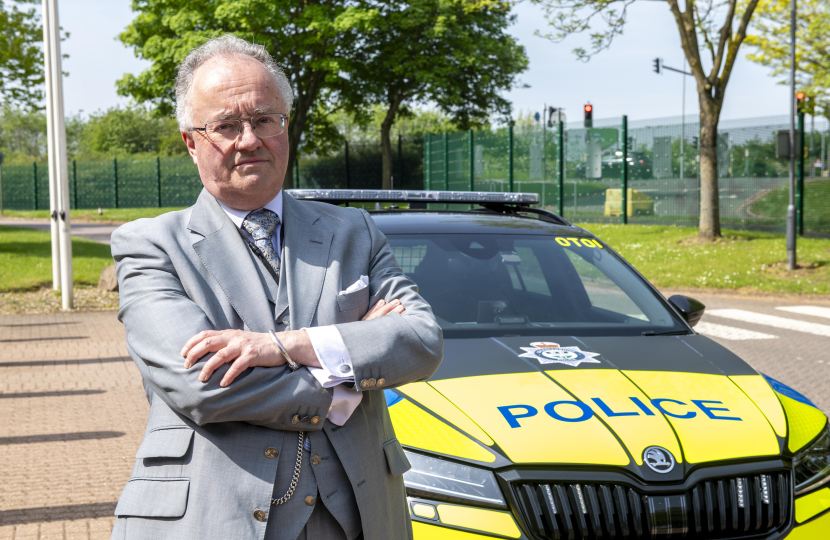
Residents across Leicester, Leicestershire and Rutland have made clear their expectations for a strong and effective neighbourhood policing service to keep them safe.
More than 2,700 residents responded to Police and Crime Commissioner Rupert Matthews' online survey with their views on where funding should be directed to improve public safety over the next four years.
The research has helped the PCC determine the priorities of his new Police and Crime Plan and ensure future investment aligns with the needs and wishes of local people.
‘Ensuring the Chief Constable can deliver a comprehensive Neighbourhood Policing Service' came out top when people were asked to rank their priorities for Neighbourhood Policing.
When quizzed on the theme of workforce efficiency, most people ranked the need to for officers to operate efficiently, with the right equipment, as the top priority.
The need for a boost in the number of Special Constables to support officers was also high on the list as the third highest public priority.
And on the theme of Rural Crime, people ranked visibility first followed by officers being present in areas where they are needed most and working with local groups to tackle and prevent crime as second and third place respectively.
Since being re-elected, the PCC has already hit the ground running to fortify Neighbourhood Policing as part of his manifesto pledges.
Neighbourhood Policing was raised in one of his first governance meetings with the Chief Constable Rob Nixon. He was reassured with the strength of commitment the Chief Constable gave to ensuring these teams have the necessary personnel, resources and equipment to protect communities effectively.
Mr Matthews is also working with his performance team to monitor the frequency with which beat officers are being redirected from their duties to maximise the time officers spend fighting crime in their communities.
In another move, he has initiated discussions with the Deputy Chief Constable on expanding the Special Constabulary and both agree on the huge value they bring to community safety.
And in tackling rural crime, the PCC has already undertaken research of local ‘Watch' groups to understand how he can support them better. His Deputy, Rani Mahal, is currently drawing up a proposal to help local groups work with the PCC and deliver prevention projects in their areas.
Mr Matthews said: "Before I was re-elected, I promised to leave no stone unturned in my mission to make our villages, towns and city safer.
"The insights from this survey will form the foundations of my Police and Crime Plan priorities and I am happy to report I have already started work on many of the issues local people have told me are important.
"Neighbourhood Policing is the bedrock of British policing and residents clearly agree. They want strong and well-equipped teams they can trust to protect them and do a good job. That is precisely what I will be striving for during my watch. Local people also believe effort must be spent on preventing crime in the first place and want the force to have enough resources to destroy the driving forces behind serious violence -including county lines and drug dealing.
"I am reviewing the detail of this research to ensure my Plan meets the needs of our communities in the way they want.
"I was elected to serve the people of Leicester, Leicestershire and Rutland and strengthen the public's voice in policing. Staying true to this vision will be vital to building confidence in the force and our criminal justice system as a whole."
The survey was completed by 2,729 people across the city and two counties.
In tackling Neighbourhood Crime, respondents placed the development of a fund for community-run projects that tackle and prevent crime as their second highest priority. In third place, was the need for increased CCTV.
The PCC recently relaunched his Community Safety Fund, pledging £400k over the next 12 months for community and grassroots crime prevention.
And this week, the PCC shared details of a new Wireless CCTV Help Point System he had funded in Melton Mowbray that enables a person in distress to instantly communicate with the force or local authority CCTV control room. The area has also benefitted from funding for three new CCTV cameras and four solar fly-tipping cameras to tackle environmental crime.


